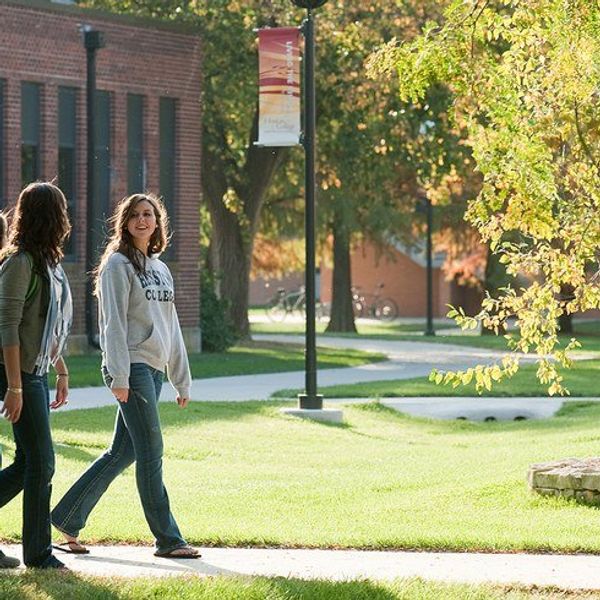1) Take Classes That Interest You
Have you ever been stuck in a class that you hated, especially in high school? We all have, and it's awful. It's especially worse in college because you can end up getting behind, not caring, and even not showing up. These all have such a huge impact on your GPA and can affect your scholarships and graduation progress.
Most of the time colleges and universities recommend that you take fifteen or even eighteen credits in one semester. This is pressured on you especially your freshman year. From experience, I can definitely say that getting used to college and taking so many classes can really take a toll on you, especially if you work or live off campus. It is vital that you don't overwork yourself or you can easily become discouraged about higher education in general! I thought about dropping out of college entirely and going to a votech (which is a great choice for some) but I ended up withdrawing from two classes in order to be able to keep up with the giant workload. You can always make up credit hours with a few credits during the summer or the following year when you are better equipped!
3) Remember to Eat Something Before Going to Class
Absolutely nothing is worse than the rumbles in class. They distract you from your work and can distract others if they are loud enough (mine sure can be!). If you can, try and eat something small it will really pay off! Another thing you can do is bring a couple of dollars for the vending machines or corner stores, or perhaps a snack bar or two. You will really thank me later.
Just like being hungry, being thirsty can be even worse! While there may be water fountains nearby, they will make it so you have to leave the class and disrupt others. You really don't want to be gone for 30 seconds and figure out you missed a seriously important part of the lecture. Make sure you come prepared for anything.
5) Make Use of Your Campus's Recreational Center (if you have one!)
The best thing that your campus may provide is a free-for-students rec. center. While exercising in front of people or even the thought of working out can be daunting, it has been shown in numerous ways to be helpful for overall well-being and even with the learning process.
It might be easier said than done, but it can be really easy to find friends with common interests in your favorite classes. It's really easy to see who likes the class you are in as well. Making friends and swapping your numbers makes it so you have a little backup, a buddy to go to the rec center with, and maybe even a lifelong friend.
7) DO NOT BUY YOUR TEXTBOOKS UNLESS YOU KNOW YOU NEED THEM
Seriously! Don't buy them if you don't need them either! I know it's good for the university to sell some, but be smart with your money if you want to or need to. This semester I found eight textbooks for approximately $200. Some are rentals and some I get to keep. Slugbooks.com is and AMAZING resource!
8) Talk to Your Professor
Do not be just another number in your classroom that the teacher doesn't recognize. Networking can start as small as being nice and courteous to your professors. You could form a bond with them, get to know stuff about the course others may have missed. You might even be able to use them as a reference for future jobs, internships, or graduate schools!





























